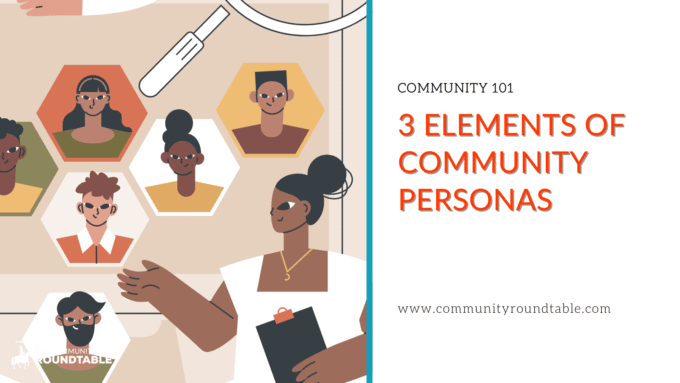
Thinking about the personas in your online community is critical – if you don’t know who you are creating content and planning programs for then you’re unlikely to create meaningful engagement.
A community persona is a group of users that displays a set of similar characteristics. Defining personas who use our communities helps us to understand how different groups interact, communicate and influence each other.
Why think about Community Personas?
Defining your audience segments is critical; the better you understand your members – how they collaborate and with whom – the better you will be at building engagement specifically for them and their needs. Personas can also help identify member gaps that lead to ineffective communities. If a community only has one type of member it can be difficult to catalyze dynamic engagement.
There are three main components to consider when defining community personas: characteristics, influencers, and workflows. By defining these three components for your persona types you can better understand who your members are, what motivates them, and how you can best help them use the community in a successful way.
3 Elements of Community Personas
Characteristics – Persona mapping isn’t a new thing just for online communities. Marketing professionals have been building audience personas for persona-based marketing campaigns for a long time. Marketing personas are typically focused on individual personal demographic characteristics, i.e. age, location, gender, etc. This is more nuanced in community persona mapping. You might want to think about what location this persona is at (in an office? which office? remote?), what team they are on, their job function, how tech-savvy they are, etc. These individual characteristics are less based on their personal attributes, and more based on their “at work” attributes.
Influencers – We don’t mean Instagram influences, or TikTok creators, for community personas we’re looking at their online social relationships as they related to the community. Who is this persona interacting with? Who do they seek approval – both intrinsically and intrinsically from. Who do they get their information from?
Workflows – The final piece is a look at their workflows. Are they already collaborating online? Are they comfortable sharing in the community? What does their daily routine look like? Are they a desk-based employee, or someone in a lab, warehouse, or out in the field? In essence, it’s about really understanding someone’s day and getting very specific so that you can understand where the greatest engagement
potential lies.
These three components are not an exhaustive list of what you should be thinking about for your community personas. As in most things community, so much depends on your community use case, the size of your organization, and of course your community goals.
As you think about your classifying your community personas, consider the segments that define your target audience and think about the behavior you want to influence with that audience. Based on that, prioritize two or three other segments that will help influence that behavior change. For a support community, you might want to include what product the member is using to best provide community interaction that makes sense for them. For an employee community, you might think about their degree of isolation or work temperament.
Once you have identified and prioritized the member segments that you want to incorporate into your community, defining those segments will help you understand how much community management is necessary to drive engagement.
